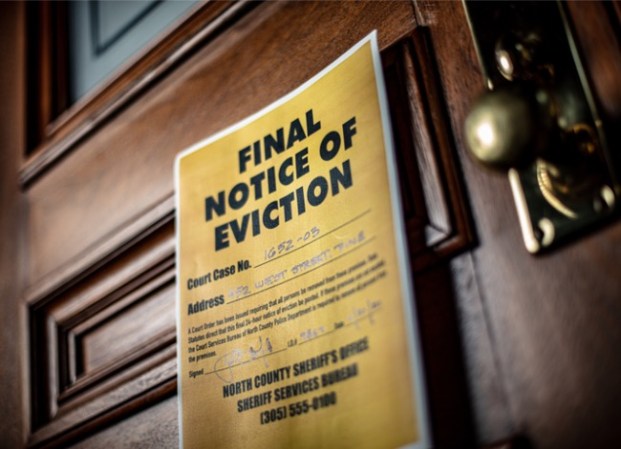We may earn revenue from the products available on this page and participate in affiliate programs. Learn More ›
Q: I recently moved into my first apartment, and my friends warned me to watch out for bed bugs. They told me that bed bugs can be a nuisance to get rid of and the costs to get rid of them can add up quickly. I have a renters insurance policy, but I’m not clear on what it covers. Does renters insurance cover bed bugs?
A: The answer to your question “Does renters insurance cover bed bugs?” is generally no. Both renters and homeowners insurance companies consider bed bugs to be a preventable problem through basic hygiene practices, such as using a protective bed bug cover on mattresses, checking used furniture, and regularly vacuuming and decluttering. However, there are cases where your landlord might be legally obligated to take care of a bed bug situation. Read on to learn about whether renters insurance covers bed bugs in any circumstances and what kinds of additional coverage you can purchase that may help.
Renters insurance generally does not cover bed bugs because they’re considered preventable.
Basic renters and homeowners insurance policies offer coverage for certain incidents, also called perils. Insurance works by providing coverage in the event of certain losses, including theft, windstorms and hail, fire and smoke, vandalism, falling objects, and burst pipes. For example, if a tree fell onto a home’s roof during a windstorm and damaged the roof and contents inside the home, this would be a covered incident. Similarly, if a lightning strike caused a home to catch fire, this would be covered under a homeowners insurance policy. However, if the house’s roof was old and not properly maintained and a storm caused damage to the shingles, the insurer may deny a claim because the homeowner neglected the roof and left it more vulnerable to damage during a storm.
Like a neglected roof, bed bug infestations are generally considered preventable by most insurers and are typically not covered. There are many ways to prevent bed bugs, which you can read more about below. Just for starters, the number one way to prevent bed bugs is to be careful about the lodging you choose while on vacation. Research the hotel chain to see if it’s had bed bug problems in the past.
There are some circumstances where landlords may be required to pay for bed bug extermination.
How much does it cost to get rid of bed bugs,or how much does it cost to treat bed bugs? And how much is an exterminator for bed bugs? The cost to get rid of bed bugs can total hundreds to thousands of dollars. The good news is that some state laws require the landlord to take responsibility for the cost of exterminating bed bugs, as well as potentially for repairing or replacing any damaged items. Considering bed bug exterminator cost, that can be a relief. For instance, according to the EPA, Arizona state law prohibits a landlord from knowingly renting a unit with a bed bug infestation and also requires the landlord to provide bed bug educational materials to renters. That means if a unit is found to have an infestation, it’s in the landlord’s best interest to take care of extermination.
Similarly, Florida state law requires landlords to take all reasonable steps to exterminate bed bugs found within their rental property. And New Hampshire prohibits a landlord from renting a unit if there is a bed bug infestation and they are not conducting regular inspections and implementing a remediation program. Many other states have similar laws that hold landlords accountable for keeping bed bugs out of the premises, as well as requiring them to take preventive measures. Landlords may also be required to provide bed bug extermination if the bed bugs were present before the tenant moved in or if those bed bugs were found in a common area.
Renters can check their state laws and their rental contract to see what their rights are in relation to bed bugs. If the remediation falls to the landlord, that can go a long way in offering bed bug protection either as prevention or treatment if there is an infestation. Otherwise, renters can hire one of the best pest control companies to take care of exterminating the bed bugs.

The best defense against bed bugs is prevention.
While some state laws do hold landlords accountable to help renters who find themselves with a bed bug infestation, it is still a highly undesirable situation to be in. Going through the extermination process might mean finding temporary housing, and an infestation could lead to damage of irreplaceable items, like an heirloom quilt. Not to mention, bed bugs can cause that telltale itching, which can lead to an infection and add medical bills to the overall cost of the infestation. Therefore, renters should take preventive measures to help decrease the chance of a bed bug infestation in the first place.
Prevention doesn’t need to be difficult or expensive. The EPA offers some simple tips for keeping bed bugs out of people’s lives, including investing in protective mattress bed bug covers, checking used furniture, and vacuuming regularly. In addition to buying a cover for the mattress, renters might also want to purchase a bed bug cover for the box spring for even more protection against bed bugs. The cover should be free of tears, cover the entire mattress, and sealed with a zipper and reinforced seams to keep bed bugs from sneaking through.
A cluttered home can give bed bugs a place to hide and can even attract them. In order to reduce bed bug hiding places, renters can commit to reducing clutter in their home and vacuuming regularly. If renters use shared laundry facilities, they can transport their laundry to and from the laundry room in a plastic bag and then fold clothing at home rather than on a communal table that may contain bed bugs. Portable heating chambers can also help treat bed bugs if renters are worried an item might have been contaminated.
Although bed bugs aren’t usually covered by renters insurance, getting renters insurance is typically advised for all renters, even if not required by the landlord.
Does renters insurance cover bed bugs? Not usually, but it does typically cover a range of other perils that make it an important consideration for renters. Landlords are generally required to carry insurance that covers damage to the building itself as a result of covered perils, but the renter’s personal property is not covered by this insurance. That’s where renters insurance comes in. Renters insurance covers personal property that is damaged or destroyed by a covered peril such as fire or theft. It also typically provides the renter with liability coverage that can help protect them if a guest is injured while on their property, and loss of use coverage that can help pay for lodging and other expenses if the renter is forced to move out while the apartment or house is undergoing repairs.

Renters insurance policies vary from provider to provider, but in general, they cover perils such as windstorms, lightning, fire, smoke, vandalism, explosions, theft, and some types of water damage. Each policy will list the perils that it specifically covers, so it’s important for renters to read the policy carefully to understand what is covered and what is not. If a renter’s possessions are damaged by a covered peril, the policy will pay either actual cash value (the depreciated value of the item or items) or the cost to replace the items at present-day prices after the deductible has been met. Liability coverage can kick in if the renter, a member of the renter’s family living in the household, or a pet causes harm to someone else or their property accidentally or through negligence.
















